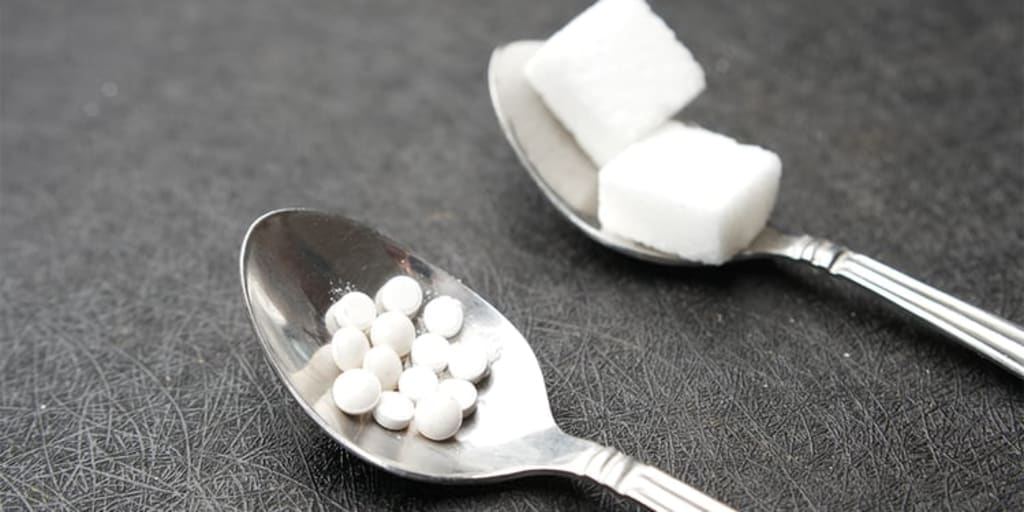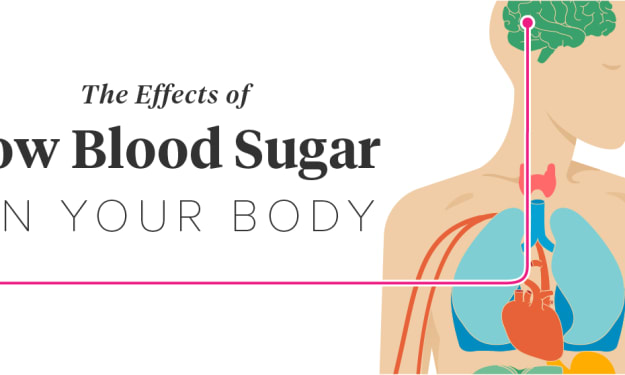Exploring the Controversy: Artificial Sweeteners and their Impact on Health
David Sinclair's Insights: Sugar, Artificial Sweeteners, and Aging

A storm is brewing in the world of sweeteners as all eyes turn to the World Health Organization's forthcoming report on the potential carcinogenicity of the sweetener aspartame. The WHO's previous downgrade of non-sugar sweeteners sparked concerns about their efficacy in weight loss, leaving consumers worried. Now, with the possibility of a cancer link, anxiety is on the rise, and potential legal suits loom. Aspartame, approved as a sweetener in the US in 1974, has been widely used, but the WHO report's findings may have far-reaching consequences.
The Complex World of Artificial Sweeteners:
In the 1970s, the US Food and Drug Administration approved six sweeteners as food additives, some of which are 200 to 20,000 times sweeter than sugar. Extensive studies have been conducted to evaluate their safety, including their effects on the reproductive and nervous systems, metabolism, and carcinogenicity. Aspartame, along with other sweeteners, has also gained approval in numerous other countries. The imminent report from the WHO's International Agency for Research on Cancer is eagerly anticipated, given the worldwide concerns about obesity, heart ailments, and diabetes.
The Dilemma of Misleading Perceptions:
Consumers often place misguided confidence in labels that label a product as "healthy" or "safe," leading to complacency or overconsumption. Artificial sweeteners face a similar perception problem, as they are seen as an alternative to sugar but raise concerns about their impact on gut microbiota and the potential for overconsumption. The scrutiny of approved and trusted products after years of use is not unprecedented, as exemplified by the recent litigation surrounding baby powder and its possible cancer links. Even the European Food Safety Authority is re-evaluating the safety of aspartame-acesulfame and neotame.
David Sinclair's Perspective:
Renowned biologist and aging expert, Professor David Sinclair, sheds light on the debate surrounding sugar and artificial sweeteners. Excessive sugar consumption can lead to chronically elevated blood sugar levels and insulin resistance, accelerating the aging process and increasing the risk of chronic diseases. Sinclair emphasizes that low insulin levels activate longevity genes, while high insulin levels hinder their activation, making sugar a significant factor in aging. In comparison, artificial sweeteners are considered less harmful, but caution is advised due to potential impacts on gut microbiota, overconsumption, and ongoing safety concerns.
Harvard Scientist Point to a New Therapy For a Forgetting Trigger of Blood Sugar..(Know Here)
The WHO report on aspartame and the cancer link it may unveil will undoubtedly have significant implications for the industry, medical professionals, and consumers. As the world grapples with health concerns like obesity, heart ailments, and diabetes, understanding the role of artificial sweeteners is crucial. While they can offer benefits such as blood sugar control and calorie reduction, the potential impact on gut microbiota and safety concerns should not be ignored. Moderation and informed decision-making remain essential in navigating the complex world of sweeteners and their impact on health.
Impact on Gut Microbiota:
Emerging research indicates that artificial sweeteners can influence the composition and function of gut microbiota, which plays a vital role in gut health and metabolic processes. Disrupting the delicate balance of the gut microbiome has been linked to various metabolic and chronic diseases. Therefore, the impact of artificial sweeteners on gut health should not be overlooked.
Potential for Overconsumption:
One of the concerns surrounding artificial sweeteners is their potential to increase the desire for sweetness, leading to overconsumption of high-calorie foods. By providing a sweet taste without the accompanying calories, artificial sweeteners may inadvertently trigger cravings for sugary and calorie-dense options. It is crucial to be mindful of portion sizes and maintain a balanced diet to avoid falling into the trap of overconsumption.
Safety Concerns:
The safety of artificial sweeteners has long been a subject of debate. While approved artificial sweeteners are considered safe for consumption within acceptable daily intake levels, questions have been raised about their potential long-term effects on chronic diseases. Ongoing research aims to shed more light on the safety profile of these sweeteners and their implications for human health.
Striking a Balance:
While artificial sweeteners can help maintain more stable blood sugar levels, control insulin response, and reduce calorie intake, it is essential to exercise caution and moderation. Understanding the potential impact on gut microbiota, the risk of overconsumption, and the ongoing safety concerns associated with artificial sweeteners allows individuals to make informed choices about their dietary habits.
About the Creator
Enjoyed the story? Support the Creator.
Subscribe for free to receive all their stories in your feed. You could also pledge your support or give them a one-off tip, letting them know you appreciate their work.
Reader insights
Outstanding
Excellent work. Looking forward to reading more!
Top insights
Compelling and original writing
Creative use of language & vocab
Easy to read and follow
Well-structured & engaging content
Excellent storytelling
Original narrative & well developed characters
Expert insights and opinions
Arguments were carefully researched and presented
Eye opening
Niche topic & fresh perspectives
Heartfelt and relatable
The story invoked strong personal emotions
Masterful proofreading
Zero grammar & spelling mistakes
On-point and relevant
Writing reflected the title & theme





Comments (1)
I'm studying nutrition and your writing was just what I learnt. Great job